Wednesday, August 12th, 2015 by
Based in Auckland, New Zealand’s biggest city, they had a new business and a limited
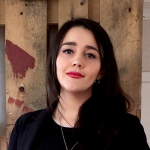
Adriana Avendano Christie, co-founder of The Pallet Kingdom
budget, so when Gabriel sat on their only desk and broke it, Adriana’s frugal innovation swept into action. She bought a circular saw and built a table from unwanted shipping pallets from a nearby construction site. After a friend offered to buy the table, the idea for what is now The Pallet Kingdom quickly sprung to life – a social enterprise that would divert pallets from landfill; give skills and support to struggling people in the community; and create furniture that would appear at expos and in trendy city cafes.
Originally from Bogota, Columbia, both Adriana and her partner Gabriel had known of each other as high-performance swimmers in their teenage years. As adults, both independently migrated to NZ (a few years apart) and eventually met through mutual friends.
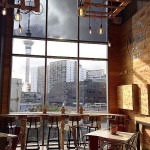
Decor by TPK @ Habitual Fix Cafe (Supplied)
They both have backgrounds in getting involved with social issues and causes in their hometown, especially with youth. Adriana’s family has a history of helping others too. Her grandparents were NZ missionaries who migrated to Columbia in the 1960s and worked tirelessly with the disadvantaged, establishing a school in a city slum. Adriana’s mother worked in one of the poorest areas of Bogota and her father founded an orphanage. It was no surprise that Adriana followed suit, having grown up spending time with girls at the orphanage and seeing the work her family did.
Gabriel too had been involved in projects in Bogota – initiatives for international students,
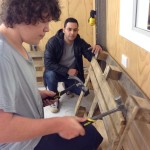
Co-founder Gabriel with Adrian at work (Supplied)
research groups on vulnerable communities, and ran various charity projects targeting youth and displaced communities. In NZ, he has continued such work. He volunteered as a panel member for an inter-agency discussion about policies for international students; served for nine months on the Ethnic Youth Consultation Committee in 2013, and now voluntarily provides academic support for students who have recently migrated to NZ. This shared background—being from the same city, having the same social awareness and involvement in their communities—lends itself well to a successful relationship. “I’m really blessed to be able to have as my other half a person who understands and shares the same love for Colombia, admiration and gratitude to NZ, as well as understanding my kiwi western behaviour,” says Adriana.
The Pallet Kingdom (TPK) operates under the umbrella of Adriana and Gabriel’s boutique consulting agency called GWAMU, where they consult or work alongside businesses or public organisations as well as non-profits, focusing mainly on strategic development with an eco-sustainable element. Suppliers can email TPK to say they have pallets available for collection. Since they do not have a truck, Adriana says they cannot pick up all the pallets they are offered, but they do it at no cost to the suppliers. This is a cost-effective solution for suppliers to get rid of the pallets they no longer want and diverts them from landfill. When asked for a general figure of how many they might have diverted, Adriana answers with unexpected precision, “In total we have diverted 2364 pallets, plus four that are in the trunk of my car that I haven’t counted in our system.” The pallets are taken back to the couple’s workshop, where they teach some free skills to those wanting to help, and later sell the items of furniture through social media.
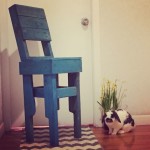
Juanita, the official model for TPK (Supplied)
Discussing how they chose who to involve, Adriana said, “We began initially actually wanting to help just refugees,” however, they realised that migrants have many stages in their settlement process. So with TPK being a budding project with limited capacity, they could generate a bigger impact looking at vulnerable communities in general rather than focusing on a specific one. So they focused on youth – those who are depressed, face financial hardship or want something to do with their free time, learn skills and get involved. Responding to how they find people, Adriana says, “Funny, but actually they are the ones who have approached us wanting to get involved, which actually make us really happy about their response.”
For the people who participate, the benefits can arise in numerous ways. Adriana recounts a time they were contacted by a man whose son was struggling and in need of some positive distraction. Gabriel was in recovery for a serious spinal injury and began to research how to deal with people who were going through depression. They decided to take the man’s son on-board. Adriana says, “He walked in with low confidence, zero building skills and trouble to socialise [sic] with strangers,” as well as struggling with anger and frustration. After around six months of involvement, he was able to walk out with some sound building skills, improved self-confidence, some basic concepts of business management, and a bit of public relations know-how. He has now been able to find full-time work and is confident and eager to take on DIY projects. Helping youth with their transition out of hardship is one of the main goals of the business.
In the past year TPK have created pieces available for hire and custom orders only. They keep pieces in stock that can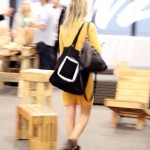 be hired out to conferences, events, markets, weddings and parties. “We want to launch a Spring-Summer collection soon.” So far, their furniture has appeared at Auckland’s Go Green Expo, TEDx Auckland, Auckland City Council, Auckland Transport and AUT University’s popular cafes in the city.
be hired out to conferences, events, markets, weddings and parties. “We want to launch a Spring-Summer collection soon.” So far, their furniture has appeared at Auckland’s Go Green Expo, TEDx Auckland, Auckland City Council, Auckland Transport and AUT University’s popular cafes in the city.
Both of TPK’s founders enjoy public speaking and the opportunity to seed some change in their audience, and through their business, hope to inspire people to become conscious consumers. They have been delivering workshops and talks to schools and different organisations in sustainable practices and special entrepreneurship.
There is a palpable sense of optimism about the future, and the growth of the business and the people involved. “We’ve grown organically. Every person in our team has an interesting story,” says Adriana, and she’s right. With their combined energy and innovation, Gabriel and Adriana will continue to create positive outcomes for individuals and build greater positive impact socially through influencing choice and educating people.
Follow on:
Instagram
Facebook
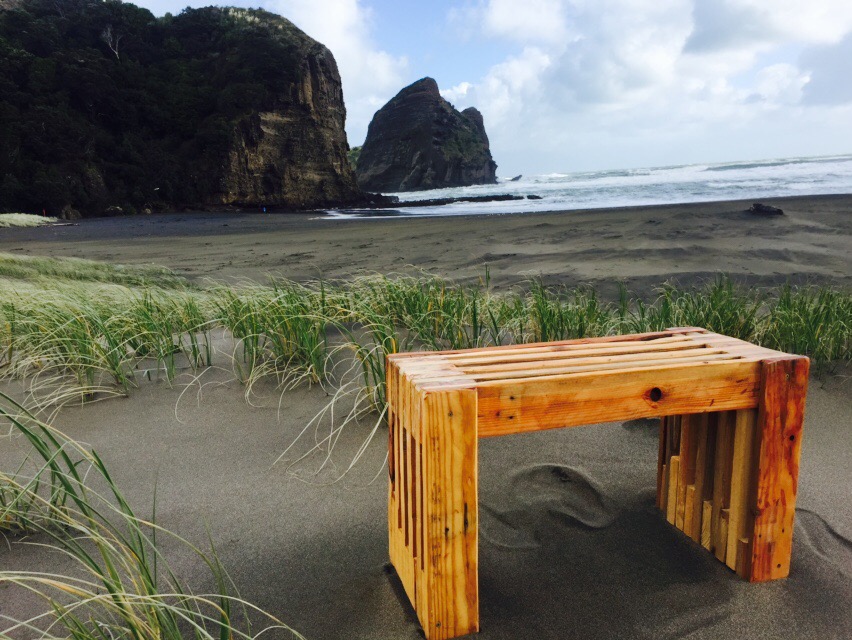
Subscribe
Sorry, there are no posts.

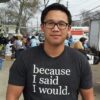

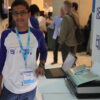





 be hired out to conferences, events, markets, weddings and parties. “We want to launch a Spring-Summer collection soon.” So far, their furniture has appeared at Auckland’s Go Green Expo, TEDx Auckland, Auckland City Council, Auckland Transport and AUT University’s popular cafes in the city.
be hired out to conferences, events, markets, weddings and parties. “We want to launch a Spring-Summer collection soon.” So far, their furniture has appeared at Auckland’s Go Green Expo, TEDx Auckland, Auckland City Council, Auckland Transport and AUT University’s popular cafes in the city.